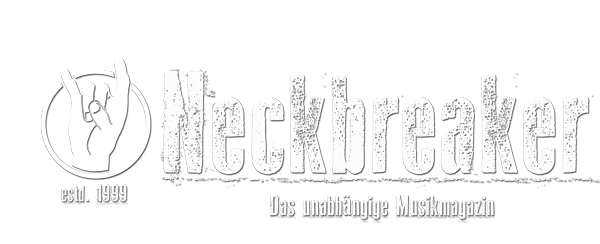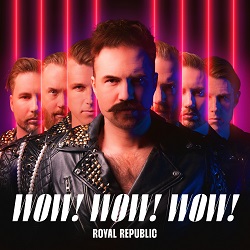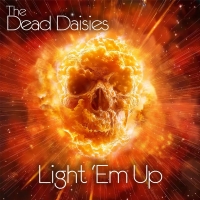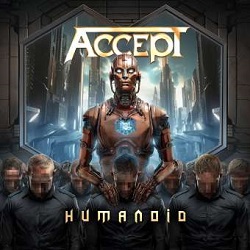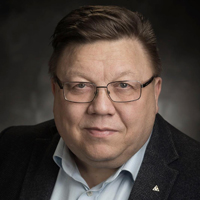 Manchmal passieren ja Dinge, die man so nicht erwartet. Vor allem auf den Färöern. Meistens sind diese Dinge eher negativ. Z.B. „Die Fähre wird heute nicht fahren, das Wetter ist zu schlecht.“. Oder „Die Fähre wird heute nicht fahren, der Motor ist kaputtgegangen.“. Aber manchmal erlebt man auch eine positive Überraschung. Als ich gerade mein Interview mit Heri Joensen beendet hatte und wir gerade gehen wollten, kam Heri zurück gesprintet und fragte mich: „Kannst du den Geschäftsführer des Orchesters auch interviewen? Du hast mir einige Fragen gestellt, die du ihn fragen solltest, also kannst du das machen?“. Und klar, natürlich habe ich zugesagt und hatte dann ungefähr zwei Minuten um das Interview vorzubereiten. Aber wenn es eines gibt, was man auf den Färöern lernt, dann ist es zu improvisieren und die Dinge so zu nehmen, wie sie kommen. Also habe ich mein spontanstes Interview bisher mit Poul Jákup Thomsen, dem Geschäftsführer des Färöischen Symphonieorchesters, geführt. Ein sehr netter und auf dem Boden gebliebener Mann, dem es völlig egal war, dass ich so unvorbereitet war. Ich habe ihn später in der Woche noch mehrere Male getroffen, als ich meine Tickets abgeholt habe, auf allen drei Konzerten und er hat sich immer die Zeit genommen, kurz mit mir zu plaudern. Hier sind wir also:
Manchmal passieren ja Dinge, die man so nicht erwartet. Vor allem auf den Färöern. Meistens sind diese Dinge eher negativ. Z.B. „Die Fähre wird heute nicht fahren, das Wetter ist zu schlecht.“. Oder „Die Fähre wird heute nicht fahren, der Motor ist kaputtgegangen.“. Aber manchmal erlebt man auch eine positive Überraschung. Als ich gerade mein Interview mit Heri Joensen beendet hatte und wir gerade gehen wollten, kam Heri zurück gesprintet und fragte mich: „Kannst du den Geschäftsführer des Orchesters auch interviewen? Du hast mir einige Fragen gestellt, die du ihn fragen solltest, also kannst du das machen?“. Und klar, natürlich habe ich zugesagt und hatte dann ungefähr zwei Minuten um das Interview vorzubereiten. Aber wenn es eines gibt, was man auf den Färöern lernt, dann ist es zu improvisieren und die Dinge so zu nehmen, wie sie kommen. Also habe ich mein spontanstes Interview bisher mit Poul Jákup Thomsen, dem Geschäftsführer des Färöischen Symphonieorchesters, geführt. Ein sehr netter und auf dem Boden gebliebener Mann, dem es völlig egal war, dass ich so unvorbereitet war. Ich habe ihn später in der Woche noch mehrere Male getroffen, als ich meine Tickets abgeholt habe, auf allen drei Konzerten und er hat sich immer die Zeit genommen, kurz mit mir zu plaudern. Hier sind wir also:
Anne: Ich habe überhaupt nichts vorbereitet, Heri hat gerade gesagt: „Du musst den auch interviewen, mach das!“. Also mache ich das. Du musst wissen, dass ich für ein hauptsächlich metalbezogenes Magazin schreibe, meine Leser kennen dich also nicht. Könntest du dich daher kurz selbst vorstellen?”
Poul Jákup: Mein Name ist Poul Jákup und jeder hier im Symphonieorchester nennt mich PJ. Ich war einer von den wenigen Leuten, die dieses Symphonieorchester 1983 gegründet haben. Zur gleichen Zeit, als wir diese fantastische Halle hier bekommen haben, haben wir das Orchester gegründet. Davor hatten wir ein Kammerorchester und ich war der Chef oder der Direktor des Orchesters für die letzten 27 Jahre und ich lebe in einem sehr kleinen Ort. Eines der kleinsten Dörfer der Färöer namens Skarvanes und das ist, wo Heri [Joensen, Anm. d. Verf.] herkommt. Ich lebe dort mit meiner Frau in dem gleichen Dorf, in dem Heri geboren wurde. Also habe ich ihn vor fünf Jahren angesprochen – ich hatte diese Idee mit TÝR und ich habe mit dem Dirigenten gesprochen und so weiter und als ich die Idee soweit hatte, habe ich mit dem Nordlandhaus gesprochen, mit dem Radio und dem Fernsehen und jetzt endlich haben wir ein Projekt. So, das ist die sehr kurze Erklärung, weshalb wir heute hier sitzen.
Anne: Wie lange hat es von der vagen Idee bis zu konkreten Plänen gedauert?
Poul Jákup: Das hat drei Jahre gedauert. Ich hatte ein Treffen mit Heri, nachdem ich die Idee für 2 Jahre hatte. Zuerst habe ich mit dem Dirigenten gesprochen und dann habe ich mit Heri gesprochen und dann musste ich das Nordlandhaus vorbereiten und das Radio und Geld auftreiben und das braucht seine Zeit, denn es ist ein großes Projekt für die Färöer. Also letztes Jahr hatten wir Diskussionen und alles und nun sind wir hier. Und natürlich habe ich die ganze Musik nach Island geschickt und der Mann da drüben [zeigt auf Haraldur V. Sveinbjörnson], der ist der Mann, der die ganze Musik für das Symphonieorchester geschrieben hat und dann entschieden wir uns „Jetzt wollen wir einen Chor“. „Ich will eine Harfe“. Und ich habe immer mit dem Dirigenten gesprochen und ich denke, jetzt haben wir hier ein gutes Projekt.
Anne: Wie lange haben die Vorbereitungen für das Konzert gedauert?
Poul Jákup: Seit der ersten Idee fünf Jahre. Als wir die Idee hatten und dann daran gearbeitet haben und jetzt, fünf Jahre später sitzen wir hier mit diesem fantastischen Projekt und hoffentlich können wir dieses Projekt nach Dänemark bringen, oder vielleicht können wir es nach Deutschland bringen. Ich habe mit einigen Leuten gesprochen, um es zu einem Festival in St. Petersburg zu bringen. Und jetzt sind wir hier, wir haben die Musik, wir haben alles fertig, so dass wir es anderen Leuten zeigen können. Denn wir sollten sicherstellen, dass wir es weiterbringen und hinaus in die Welt bringen können. Wir haben auch Videoaufnahmen des Fernsehens, die es senden werden, so dass jeder es sehen kann und das ist wahrscheinlich auch eine gute Idee für ein Festival in Deutschland.
Anne: Also ist es live im Fernsehen?
Poul Jákup: Ich weiß nicht, ob sie es live senden. Manchmal senden sie live, aber man kann zumindest auf die Homepage gehen und es dort ansehen. Aber sie werden es auch senden. Nur wann weiß ich nicht. Das Neujahrskonzert wird immer direkt gesendet, das kann man auf der Homepage ansehen.
Anne: Weißt du, ob es eine CD oder DVD hiervon geben wird?
Poul Jákup: Nein, das ist noch nicht entschieden, aber wenn, dann wäre das fantastisch. Ich weiß nicht, wie man solche Dinge verkauft, aber warum soll man sowas nicht im Internet verkaufen? Das wäre gut.
Anne: Habt ihr schon konkrete Pläne in welche Städte z.B. in Deutschland ihr das bringen wollt?
Poul Jákup: Nein, nein, nein, wir haben darüber gesprochen, es nach Dänemark zu bringen und wir arbeiten daran und wir haben mit einigen Leuten in St. Petersburg gesprochen. Ich will, dass sie die Aufnahmen sehen, die Fernsehaufnahmen, so dass sie sehen können was es ist und dann eine Entscheidung treffen können, aber hoffentlich ist es so interessant für eine Gruppe von Menschen, dass sie sagen „Wow, das ist etwas, das wir sehen wollen!“.
Anne: Kannst du mir sagen, wie viel Arbeit es war, die Songs für das Orchester zu arrangieren? Ich meine, du hast das ja nicht gemacht, sondern Haraldur V. Sveinbjörnson.
Poul Jákup: Ja, Haraldur V. Sveinbjörnson. Er ist professioneller Musiker in Island und er schreibt auch eine Menge Musik für andere Rockgruppen und das ist sein Job und er ist sehr gut in seinem Job und es hat ihn ein paar Wochen gekostet, das zu schreiben. Vierzehn Melodien für Chor, Band, Symphonieorchester und dann habe ich noch die Harfe ins Spiel gebracht, von daher bin ich sehr aufgeregt. Ich denke, es ist ein Konzert, bei dem sich jeder freuen wird es zu sehen oder zu hören, auch die Leute, die normalerweise nur zu klassischen Konzerten kommen, ich glaube, die haben auch Tickets gekauft. Es ist so besonders.
Anne: Ich persönlich finde, dass es nicht viele Unterschiede zwischen klassischer Musik und Heavy Metal gibt, da beide die gleiche Power haben und auf ihre Art episch sind. Was ist deine Meinung?
Poul Jákup: Ich stimme vollkommen zu. Die klassische Musik ist die Grundlage und dann kann man verschiedene Dinge spielen, aber für mich ist alles mehr oder weniger klassische Musik. Von daher passt es sehr gut zusammen.
Anne: Welches Instrument spielst du?
Poul Jákup: Ich spiele Violine. Und Trompete. Und Saxophon. Und Klavier. Und Oboe. Und verschiedene weitere aber im Symphonieorchester habe ich für viele Jahre Violine gespielt. Ich weiß nicht. Und ich spiele Kontrabass. Und ich habe Trompete in einer Blasmusikkapelle gespielt, wir haben die Europäischen Blasmusikmeisterschaften 2004 in Glasgow gewonnen.
Anne: Ich fürchte, das waren meine Fragen. Ich war so unvorbereitet, Heri kam einfach angerannt und hat gefragt: „Willst du ihn auch interviewen?“
Poul Jákup: Entspann dich! Du bist in einem besonderen Moment.
Anne: Gibt es etwas, das du erzählen möchtest?
Poul Jákup: Nein, nein. Ich bin einfach nur glücklich, hier mit euch zusammen zu sein und dass ihr beide hier seid und mich über das interviewt, das da kommt.
Anne: Danke!
Poul Jákup: Was ich hoffe ist, dass dieses Projekt hier, wenn andere Leute es sehen, dass sie dann sagen “Wow, das ist etwas, was wir gerne in Deutschland oder wo auch immer sehen würden!“ und wir es dann auf eine höhere Ebene heben können mit dem Symphonieorchester und den Chören.
Anne: Ich würde es mir in Deutschland nochmal ansehen.
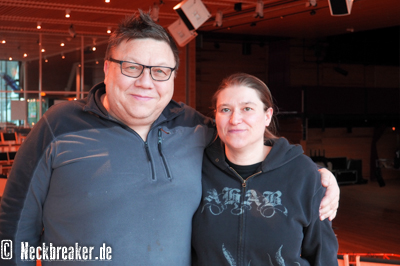 Poul Jákup: Habt ihr das Poster gesehen, das wir gemacht haben? Wir haben ein Poster gemacht.
Poul Jákup: Habt ihr das Poster gesehen, das wir gemacht haben? Wir haben ein Poster gemacht.
Anne: Ja, wir wollen es kaufen.
Poul Jákup: Das hat ein Freund von mir gemacht, ein Künstler aus Klaksvík [Edward Fuglø, Anm. d. Verf.] und ihr könnt am Fuß des Posters sehen, dass da diese weiße und schwarze Fläche am Hals des Drachens ist und das symbolisiert einen Vogel, den wir Lomvigi [dt. Trottellumme, Anm. d. Verf.]. Also wenn du das Poster siehst, dieses Schwarz und Weiß am Nacken des Drachens repräsentiert das Symphonieorchester. Denn wir spielen in Schwarz und Weiß und dann ist innen dieser ganze Heavy Metal und man kann das Klavier als Zähne sehen und das Horn als Auge und es ist fantastisch.
Anne: Wir werden es jetzt gleich kaufen.
Poul Jákup: Es sollte noch ein paar geben. Aber ihr müsst euch beeilen. Sie haben nur 500 Exemplare gedruckt und morgen werden sie ausverkauft sein.
Anne: Ich danke dir sehr!
Poul Jákup: Ja, ich werde hier irgendwo rumrennen, also wir sehen uns. Kommt ihr auch zum Konzert?
Anne: Ja, ich komme zu allen drei Konzerten.
Poul Jákup: Wir werden uns über den Weg laufen.
Foto: Poul Jákup Thomsen, Foto von Poul Jákup und mir: Andrea H.
 Sometimes things happen which you did not expect. Especially on the Faroe Islands. Mostly, those things are rather negative. Like “The ferry won’t go today, the weather is too bad”. Or “The Ferry won’t go today, the engine broke down.”. But sometimes there is also a pleasant surprise. When I had finished my interview with Heri Joensen and was just about to leave, Heri came back running to me and asked me: “Can you interview the CEO of the orchestra as well? You asked me some questions you should have asked him, so can you do that as well?” Oh well, of course I said yes and had like 2 minutes to prepare for the interview. But when there is one thing you learn on the Faroe Islands, it is to improvise and take things as they come. And so I did my most spontaneous interview ever with Poul Jákup Thomsen, the CEO of the Faroese Symphony Orchestra, a very nice and down to earth man who didn’t care at all that I was more or less unprepared. I also met him several times during the week, when I picked up my tickets, and at all three concerts and he always took the time to chat a bit with me. So here we go:
Sometimes things happen which you did not expect. Especially on the Faroe Islands. Mostly, those things are rather negative. Like “The ferry won’t go today, the weather is too bad”. Or “The Ferry won’t go today, the engine broke down.”. But sometimes there is also a pleasant surprise. When I had finished my interview with Heri Joensen and was just about to leave, Heri came back running to me and asked me: “Can you interview the CEO of the orchestra as well? You asked me some questions you should have asked him, so can you do that as well?” Oh well, of course I said yes and had like 2 minutes to prepare for the interview. But when there is one thing you learn on the Faroe Islands, it is to improvise and take things as they come. And so I did my most spontaneous interview ever with Poul Jákup Thomsen, the CEO of the Faroese Symphony Orchestra, a very nice and down to earth man who didn’t care at all that I was more or less unprepared. I also met him several times during the week, when I picked up my tickets, and at all three concerts and he always took the time to chat a bit with me. So here we go:
Anne: I haven’t prepared anything, because Heri just said: “You have to interview him as well, do that!” So I just do that. You have to know that I write for a mainly metal-related magazine, so my readers don’t know you. Could you maybe just give a short introduction of yourself?
Poul Jákup: My name is Poul Jákup and everybody here in the symphony orchestra calls me PJ. I was one of the few people who started this symphony orchestra in 1983. At the same time as we got this fantastic hall here we started the symphony orchestra. We had a chamber orchestra and for the last 27 years I’ve been the boss or director for the symphony orchestra and I live in a very little place. One of the smallest villages in the Faroe Islands, called Skarvanes and that is where Heri [Joensen] comes from. I live there now with my wife and in the same village where Heri is born. So I talked to him 5 years ago - I had this idea about TÝR and I talked to the conductor and so on and when I got the idea I talked to the Nordic House, talked to the radio and television and now we finally had a project. So that’s the very short introduction to why we are sitting here today.
Anne: How long did it take from the vague idea to making concrete plans?
Poul Jákup: It took 3 years. I had a meeting with Heri after I had the idea for 2 years. First I talked to the conductor and then I talked to Heri and then I had to go to prepare the Nordic house and the radio and find money and it takes time because it’s a big project in the Faroe Islands. So last year we had debating and everything and now we’re here. Then I of course sent all the music to Iceland and this man standing over there [points to Haraldur V. Sveinbjörnson], he is the man who was writing all the music for the symphony orchestra and then we decided “Now we want a choir.” “I want a harp.” And I always talked to the conductor and now I think we have a good project here.
Anne: How long took the preparations for the concert?
Poul Jákup: Since the first idea 5 years. When we got the idea and then just worked on it and now 5 years later we’re sitting here with this fantastic project and hopefully we can take this project to Denmark or maybe we can take it to Germany. I have to talk to some people to take it into a festival in St. Petersburg, so now we are here, we have the music, we have everything ready, so we can show it to other people. Then we should reassure to take it further out and into the world. We also have a video record of the television who broadcast it, so everybody can see it so that is probably a good idea for a festival in Germany.
Anne: So it’s live in TV?
Poul Jákup: I don’t know if they send it live. Sometimes they send live, but at least you can go in on the homepage and see it over there. But they will also send it. But when, I don’t know. When it’s a new year’s concert, they send it directly. You can see it on the homepage.
Anne: Do you know if there will be a CD or DVD of this?
Poul Jákup: No, it’s not decided yet, but if, it’s fantastic. I don’t know how you sell things like that, but why not sell it on the internet? That would be fine.
Anne: Do you have already concrete plans to which towns in like Germany you will bring it?
Poul Jákup: No, no, no, we’ve been talking about to take it to Denmark, and we are working on that and we have talked to some people in St. Petersburg. I want them to see the recordings, the television recordings, so they can see what it is so we can make a final decision, but hopefully it is so interesting for a group of people that they say “Wow, that is something we want to see!”.
Anne: Can you tell me how much work it was to arrange the songs for the orchestra? I mean, you didn’t do it, it was Haraldur V. Sveinbjörnson.
Poul Jákup: Yes, Haraldur V. Sveinbjörnson. He’s a professional musician in Iceland and he is also writing a lot of music for other rock groups and that’s his job and he is very good at his job and so it took some weeks for him to write it out. Fourteen melodies for the choir, rock orchestra, symphony orchestra and then I put in the harp, so I’m very excited. I think this is a concert everybody will be happy to see and listen to, also the people who normally only come to classical music, I think they have also bought tickets, it’s so special.
Anne: I, personally, think there is not so much difference between classical music and metal because they have the same power and they are both epic. What is your opinion?
Poul Jákup: I completely agree. The classical music is the ground and then you can perform different things but for me everything is more or less classical music. So that fits very good together.
Anne: What instrument do you play?
Poul Jákup: I play violin. And trumpet. And Saxophone. And Piano. And Oboe. And several others but in the symphony orchestra I played the violin for many years. I don’t know. And I played double bass. And then I played trumpet in a brass band, we won the European brass band championships with my orchestra in 2004 in Glasgow.
Anne: I’m afraid those were my questions. I was so unprepared, Heri just came running and said “Do you want to interview him as well?”
Poul Jákup: Just relax! You’re in a special moment.
Anne: Is there something you want to tell?
Poul Jákup: No, no. I’m just happy to be here with you and that you two are here and interview me about what comes.
Anne: Thank you!
Poul Jákup: What I am hoping for is that this project here, when other people can see it, see the television production, that they say “Wow, that is something that would be fine to take to Germany or wherever.”. And lift it on a higher level with the symphony orchestra and the choirs.
Anne: I would come see it again in Germany.
 Poul Jákup: Have you seen the poster we made? We made a poster.
Poul Jákup: Have you seen the poster we made? We made a poster.
Anne: Yes, we want to buy it.
Poul Jákup: That is made by a friend of mine, an artist from Klaksvík [Edward Fuglø] and you can see at the bottom of the poster, where you have the black and white here at the neck of the dragon and that symbolizes a bird we call Lomvigi [Guillemot in English], so when you see the poster, that black and white neck of the dragon that is representing the Symphony Orchestra. Because we play in black and white and then inside, you have all this heavy metal inside and you can see the piano is the teeth and the horn is the eye and it’s fantastic.
Anne: We’re going to buy it right now.
Poul Jákup: There should be a few left. You have to hurry up. They have only printed 500 so tomorrow they will be sold old.
Anne: Thank you very much!
Poul Jákup: Yes, I’m gonna be around, so see you! And you come to the concert as well?
Anne: Yes, I’ll come to all three concerts.
Poul Jákup: We’ll run into each other.
Picture: Poul Jákup Thomsen, picture of Poul Jákup and me: Andrea H.
